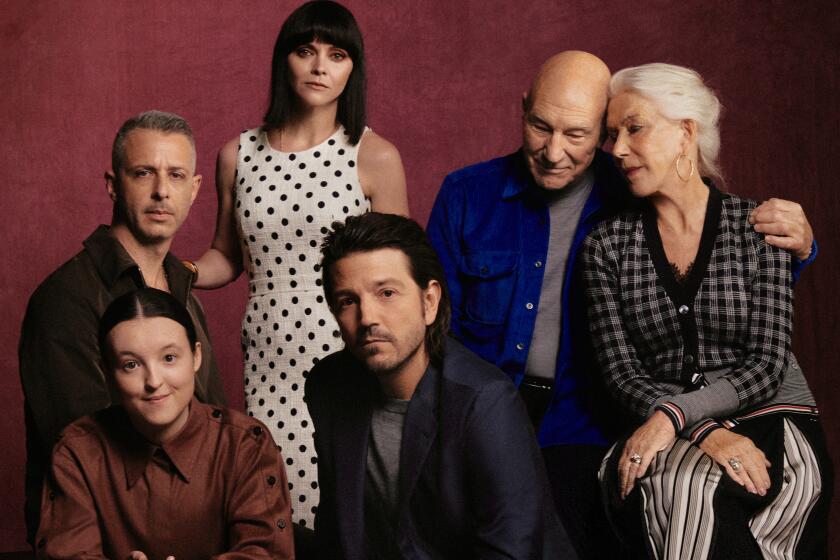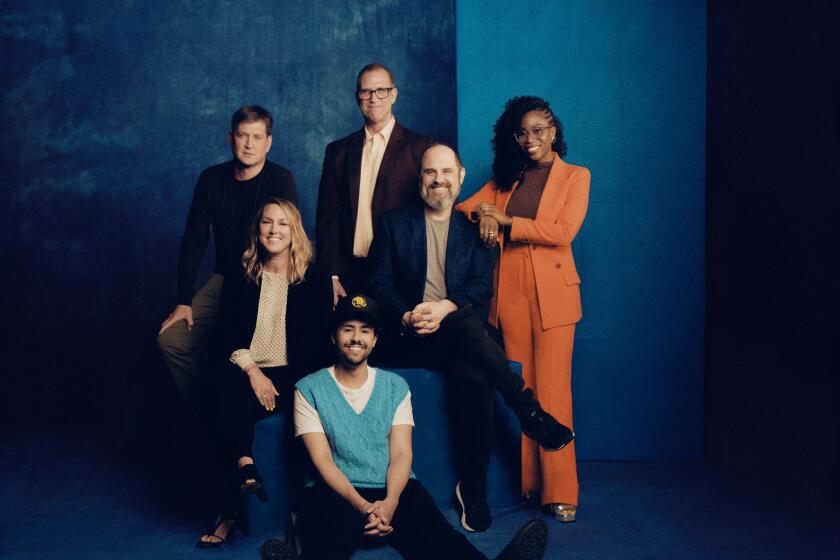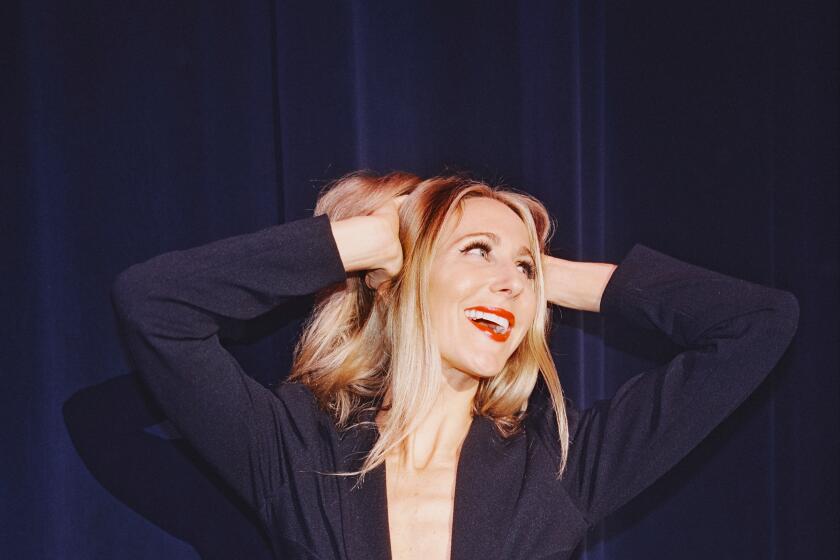Craig Mazin has next season’s ‘Last of Us’ in his head. If only the strike would settle
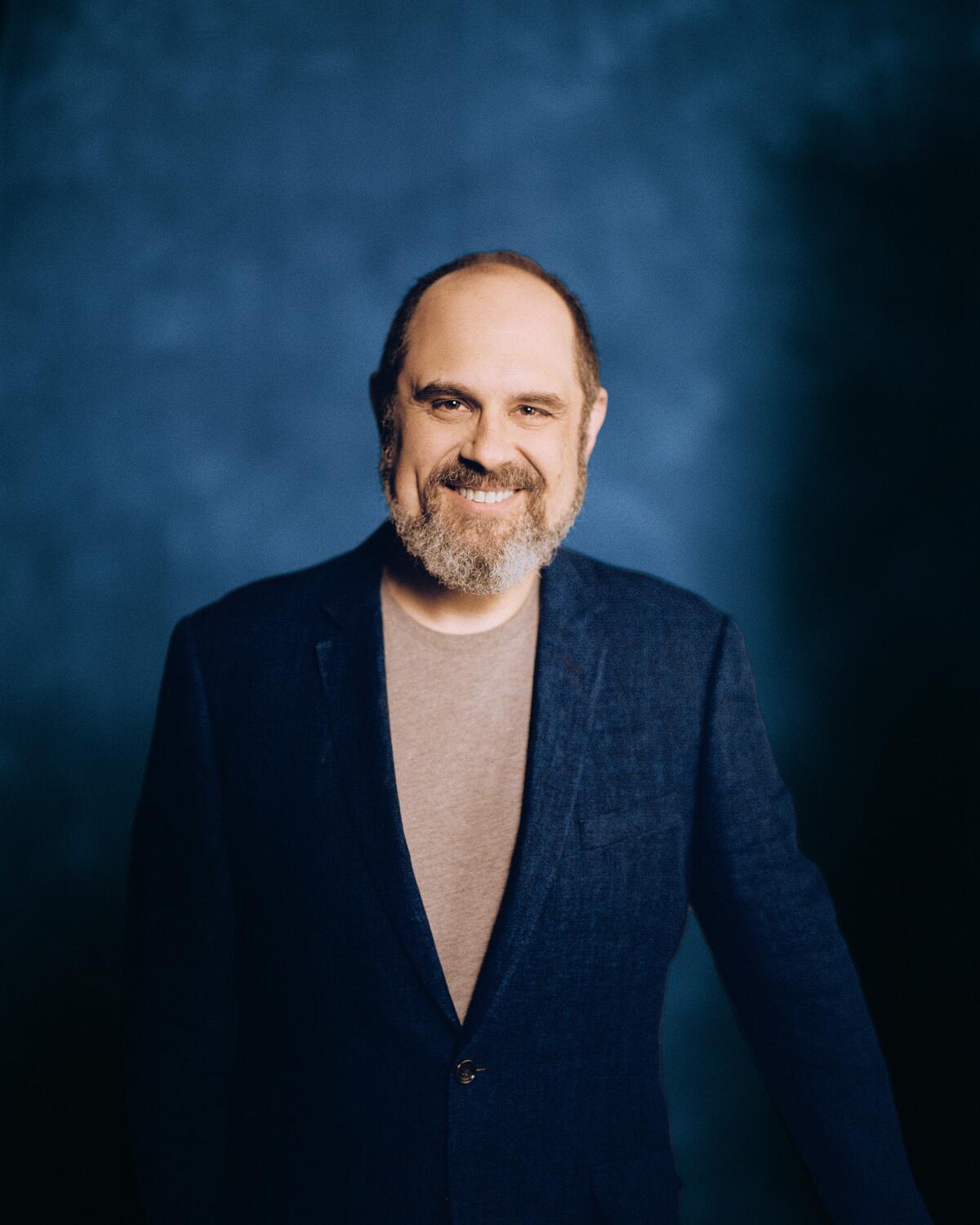
By his own admission, Craig Mazin isn’t really a zombie guy. So what’s he doing showrunning the most prestigious zombie series on TV?
“What ‘The Last of Us’ really explores is the duality of love, not love and hate, just love,” Mazin tells The Envelope. “When you love your own family, your own people, you want to defend your own group. That’s either patriotism or xenophobia; it’s hard to tell the difference sometimes. No one’s going to question the idea that you want to protect your child until you start to say how many other children you would be OK sacrificing to keep your children alive. What if the answer is two? That’s love. But also on some level it’s just not correct.”
The HBO show based on Naughty Dog’s popular video game stars Pedro Pascal as Joel Miller, who witnesses the death of his young daughter at the start of the zombie apocalypse. Months later, still alive by virtue of some pretty unvirtuous acts, Joel finds himself guardian to 14-year-old Ellie (Bella Ramsey), who just might hold the cure to the cannibalistic chaos. Their journey takes them from Boston to Wyoming, hunted at times by a murderous clan led by guest star Melanie Lynskey as Kathleen.
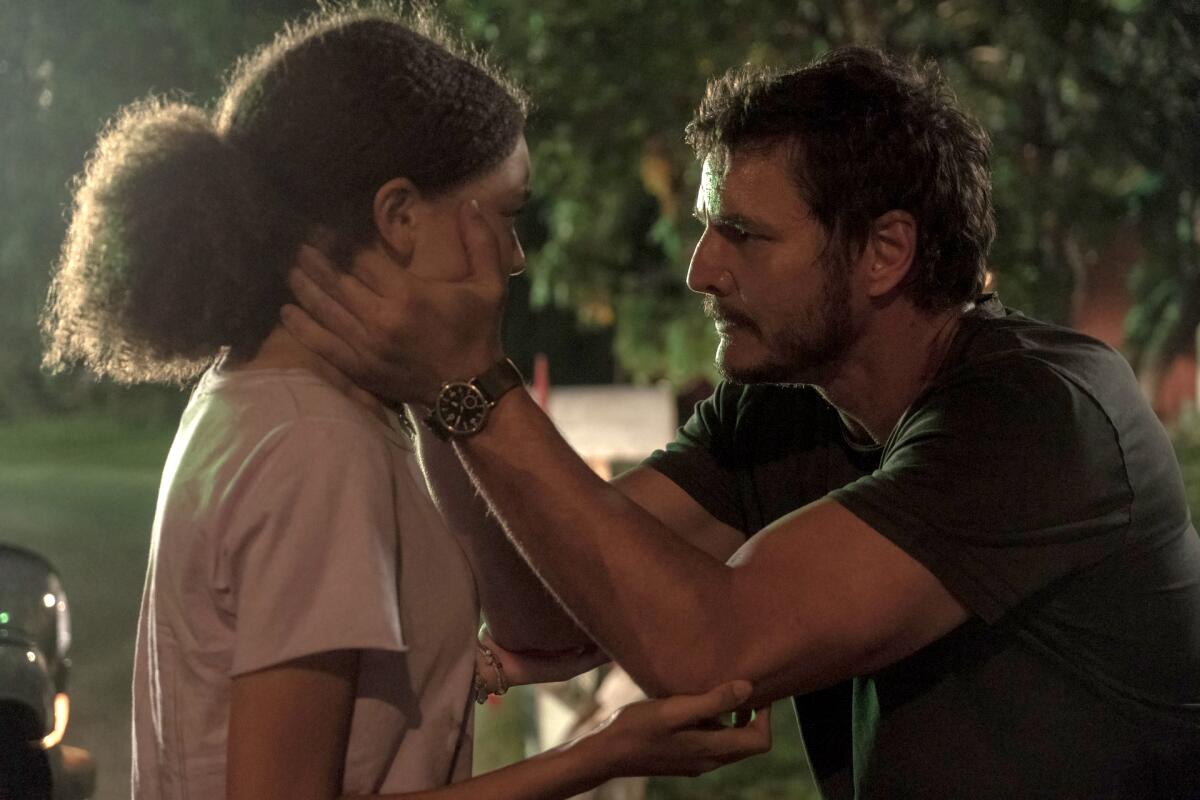
“When I called Melanie about it, I said, ‘Look, you probably don’t get a chance very often to play a kind of homicidal warlord. But I need you, because I need people to understand her and see why she is the way she is.’ It’s not because she loves blood or murder. She loves people. She loved her brother more than anything. And then you start to see the guy she’s hunting’s no different than her, behaves in the same way.”
With the WGA strike, plans for a second season are on hold. Before the deadline, Mazin was able to submit one script for Season 2 as well as materials for key personnel so they could start scouting. The rest of the season he’s been writing in his head.
In a roundtable conversation, Diego Luna, Helen Mirren, Bella Ramsey, Christina Ricci, Patrick Stewart and Jeremy Strong dive deep into their appreciation of writers, mothers and “not giving a f--”
“I’m in rarefied air in terms of my career and my economic position, and this is not a strike for me. Theoretically, my life doesn’t change that much at all. It’s for the rank and file of the union, for the 95% of the union that cannot survive the way the business is currently structured,” says Mazin, who agreed to talk to The Envelope in an interview coordinated only by his personal publicist in accordance with WGA rules. “I just hope the companies stop this soon. As a whole, I think the writers and actors are rather at peace with the decision, because we’re right and they’re wrong. And I think they know it, and I think they’re struggling to accept it. But they will, and it will end. We’re waiting for them to snap out of their insanity,” he says of the Alliance of Motion Picture and Television Producers.
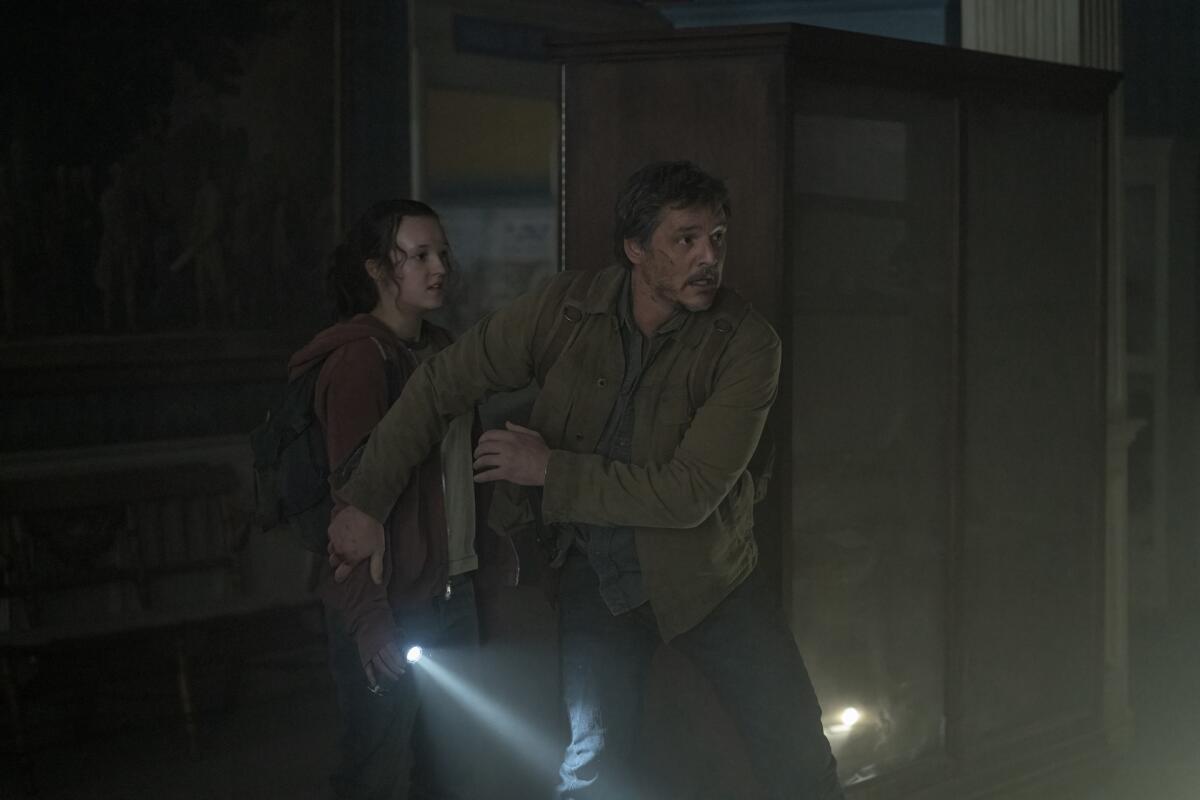
Once the series is back in production, key questions abound about the second season, such as who will play Abbie, a new character who is a rival to Ellie. The role has been cast, but Mazin isn’t dropping any spoilers, and he won’t address complaints that the first season could have used more scenes with the fungus-headed infected to juice the drama a bit.
“The thing about the infected is if you put too much of them in, it gets too actiony and you get used to them and they’re no longer scary because they’re there all the time. If you can escape the infected 12 times, how scary are they? If you escape them three times over nine episodes, each one of those encounters better be gripping. When it comes to the infected, better to be more like the shark in ‘Jaws’ than the white noise you stop noticing,” he offers, laying out a through line that applies to both seasons. “Adventure and danger are essential but always through the lens of what it means for relationships. We believe when our characters have to fight on the show, it has to be within the context of changing character and relationships and stakes.”
Craig Mazin, Bill Lawrence, Janine Nabers, Liz Tigelaar, Ramy Youssef and John Hoffman sound off about the industry, taking credit and “worry management.”
Mazin, originally from New York City, attended Princeton University in 1992 where he roomed his freshman year with future Republican Sen. Ted Cruz, whom he has no love for. After a couple of years working in Disney marketing, he sold his first script in 1995, the sci-fi comedy “RocketMan.”
When he’s not on “The Last of Us,” Mazin has been working intermittently on both “Dune” movies and circling a new “Pirates of the Caribbean” installment, but only if he can work with Ted Elliot, who co-wrote the first of the franchise and two subsequent films.
“We pitched it and thought there’s no way they’re buying it, it’s too weird. And they did!” Mazin reflects on a project. “And then he wrote a fantastic script and the strike happened and everyone’s waiting around.”
His 2019 miniseries “Chernobyl,” about the 1986 nuclear disaster in the USSR, marked a turning point in a career writing comedies like the two sequels to “The Hangover,” “Scary Movie 3 and 4” and “Identity Thief.”
“The influence that Chernobyl had on ‘The Last of Us’ is more about the filmmaking itself,” says Mazin, who directed the first episode of Season 1 of the postapocalypse series and plans to direct more in the second season. “There’s a science fiction aspect of ‘The Last of Us’ that is served well by a realistic approach.”
“Chernobyl” won 10 Emmy Awards. “The Last of Us” is nominated for 24 Emmys, including nods for Pascal and Ramsey as well as Mazin for writing. Already a two-time Emmy winner, he’s thrilled the show is getting recognized but is not counting on a huge payoff when it comes to the big night, now set for Jan. 15.
“This one will just be like a party,” he says with a casual shrug, adding, “Good job, ‘Succession,’ I’m going to go to the party now.”
More to Read
From the Oscars to the Emmys.
Get the Envelope newsletter for exclusive awards season coverage, behind-the-scenes stories from the Envelope podcast and columnist Glenn Whipp’s must-read analysis.
You may occasionally receive promotional content from the Los Angeles Times.
